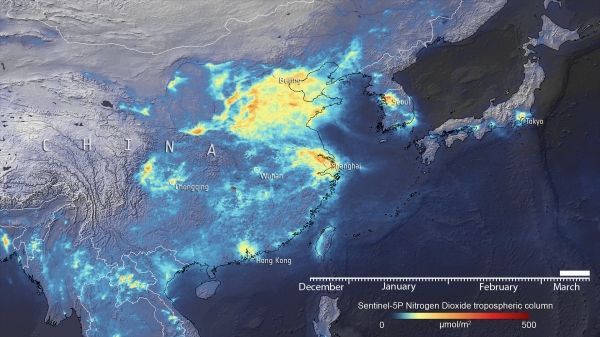This new map shows the variation of nitrogen dioxide concentrations over China from December to March – thanks to the Tropomi instrument on board the Copernicus Sentinel-5P satellite.
As news of the coronavirus broke out in the Hubei province, China, in late December 2019, stricter measures were put in place. As a result, by late January, factories were closed and streets were cleared as Chinese authorities had ceased daily activities to stop the spread of the illness.
This led to the dramatic reduction in nitrogen dioxide concentrations – those released by power plants, industrial facilities and vehicles – in all major Chinese cities between late-January and February. The drop in concentrations also coincided with Lunar New Year celebrations, which usually sees a similar drop in concentrations each year.
The Copernicus Atmosphere Monitoring Service (CAMS) observed a decrease of fine particulate matter – one of the most important air pollutants – in February 2020 compared to the previous three years. By combining satellite observations with detailed computer models of the atmosphere, their studies indicated a reduction of around 20-30% in surface particulate matter over large parts of China.
Continue reading at European Space Agency
Image via European Space Agency


